The Research Excellence Framework (REF) is the UK’s system for assessing the quality of research in UK higher education institutions. The threefold purpose of the REF is:
- to provide accountability for public investment in research and produce evidence of its benefits
- to provide benchmarking information and establish reputational yardsticks
- to inform the selective allocation of funding for research.
For each submission, three distinct elements are assessed: the quality of outputs (e.g. journal articles, book chapters, research reports), their impact beyond academia, and the environment that supports research.
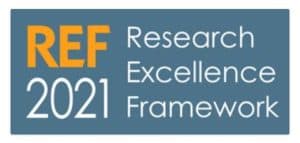 The REF2021 results have just been published, and the College is delighted to able to announce that 78% of our research activity was deemed to be ‘recognised internationally’ in terms of originality, significance and rigour (up from 72% in REF2014) and 22% was judged to be at the very highest levels of ‘internationally excellent’ or ‘world leading’.
The REF2021 results have just been published, and the College is delighted to able to announce that 78% of our research activity was deemed to be ‘recognised internationally’ in terms of originality, significance and rigour (up from 72% in REF2014) and 22% was judged to be at the very highest levels of ‘internationally excellent’ or ‘world leading’.
Commenting on the results, Principal and CEO, Professor Jonathan Heggarty said: “Our mission, as an education-focused University College, is to transform the lives of children and young people through excellence in teaching, research and scholarship. High quality, impactful research is critical to our role in providing excellent research-informed programmes, shaping professional practice and informing policy. These REF2021 results once again demonstrate the expertise, passion and commitment of Stranmillis staff to make a positive impact to lives of so many people.”
Director of Research and Scholarship, Dr Noel Purdy, added: “Today’s REF2021 results are a reflection of the growth of research and scholarship at Stranmillis over recent years. As a small, specialist University College we have worked hard to facilitate the development of research and scholarship expertise over recent years and were really pleased that our 2021 submission included more than double the number of staff than in 2014. We are also delighted that 100 per cent of our research impact was ‘recognised internationally’, which is a reflection of our commitment to changing policy and practice in classrooms and improving educational outcomes for children. Producing high-quality research and scholarship is very much a team effort and I would like to congratulate everyone in the College who has contributed towards these very encouraging results. I would also like to thank our retiring visiting professors (Professors Colleen McLaughlin and Elizabeth Wood) for their invaluable support and guidance.”
 Friday marked a second day of celebration with the Class of 2022 BEd Primary and BEd Post-primary students enjoying a memorable day with friends, family, classmates and the Stran family . Our congratulations on graduating and our best wishes for the future. Following the Graduation ceremony, our graduates, along with some of our 2021 cohort of graduates, were able to join together and celebrate their achievement together back on campus at our Celebration Lunch and the Awards ceremonies for those receiving awards, prizes and
Friday marked a second day of celebration with the Class of 2022 BEd Primary and BEd Post-primary students enjoying a memorable day with friends, family, classmates and the Stran family . Our congratulations on graduating and our best wishes for the future. Following the Graduation ceremony, our graduates, along with some of our 2021 cohort of graduates, were able to join together and celebrate their achievement together back on campus at our Celebration Lunch and the Awards ceremonies for those receiving awards, prizes and  Degree Enhancement Certificates.
Degree Enhancement Certificates.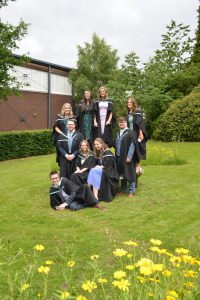



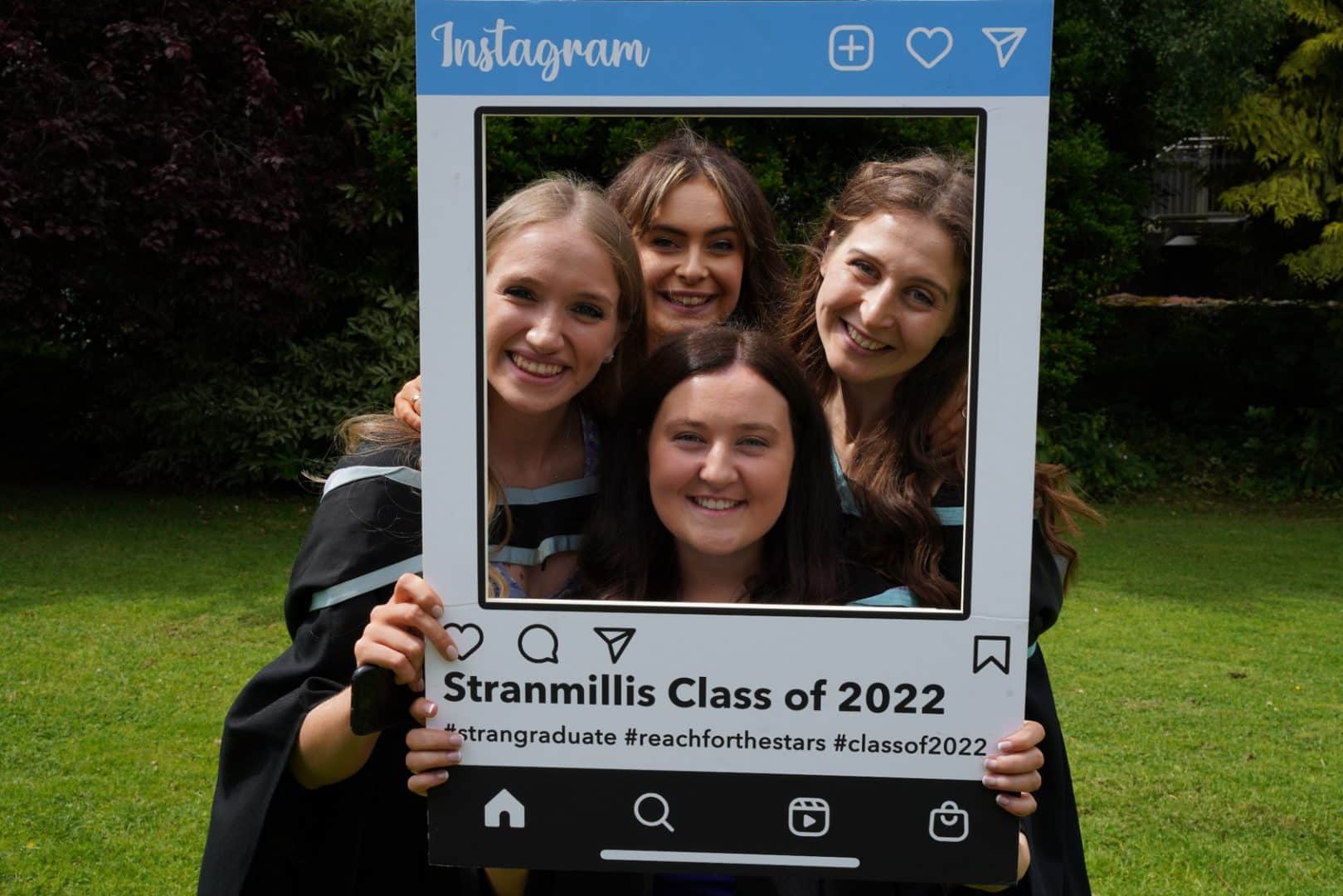
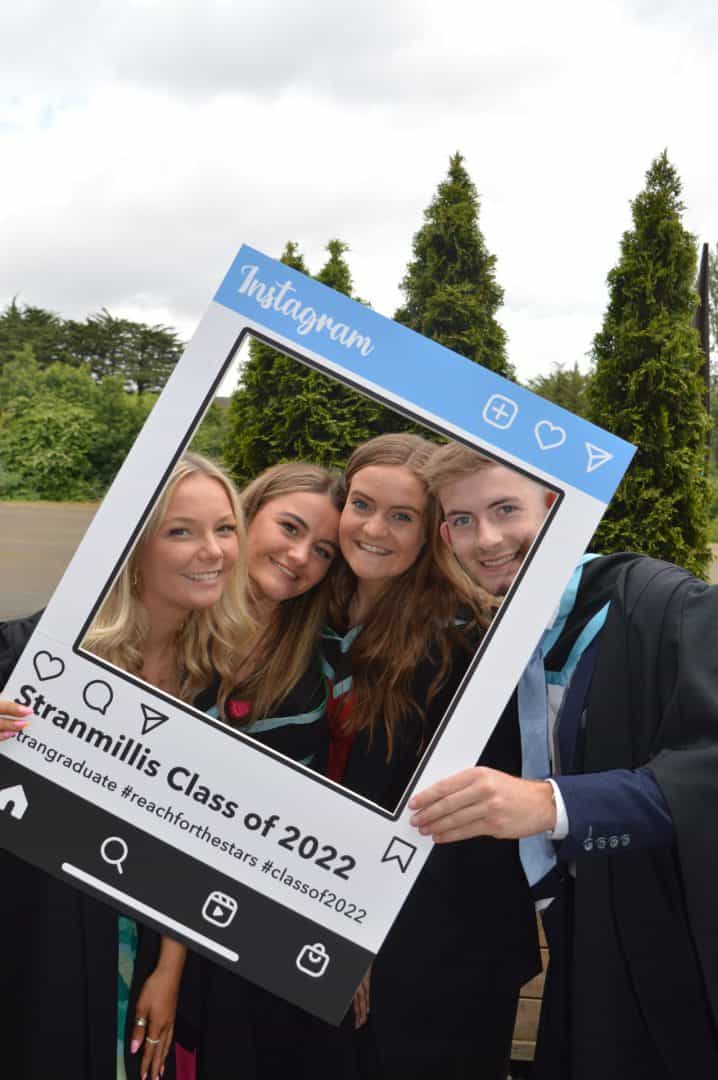
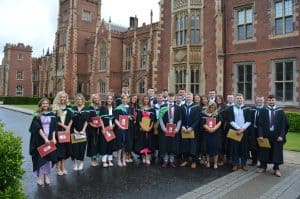 After a challenging three years and overcoming the difficulties of studying in global pandemic, our Early Childhood Studies and Health, Physical Activity and Sport and Masters students graduated today. Our congratulations and best wishes go to them all. Following the Graduation ceremony, the students, their families and college staff, along with some of our 2020 graduates, were able to celebrate their achievement together on campus at our Celebration Lunch and the Awards ceremonies for those receiving awards, prizes and
After a challenging three years and overcoming the difficulties of studying in global pandemic, our Early Childhood Studies and Health, Physical Activity and Sport and Masters students graduated today. Our congratulations and best wishes go to them all. Following the Graduation ceremony, the students, their families and college staff, along with some of our 2020 graduates, were able to celebrate their achievement together on campus at our Celebration Lunch and the Awards ceremonies for those receiving awards, prizes and 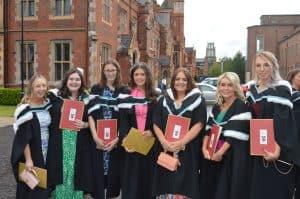 Degree Enhancement Certificates.
Degree Enhancement Certificates.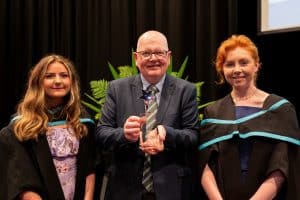


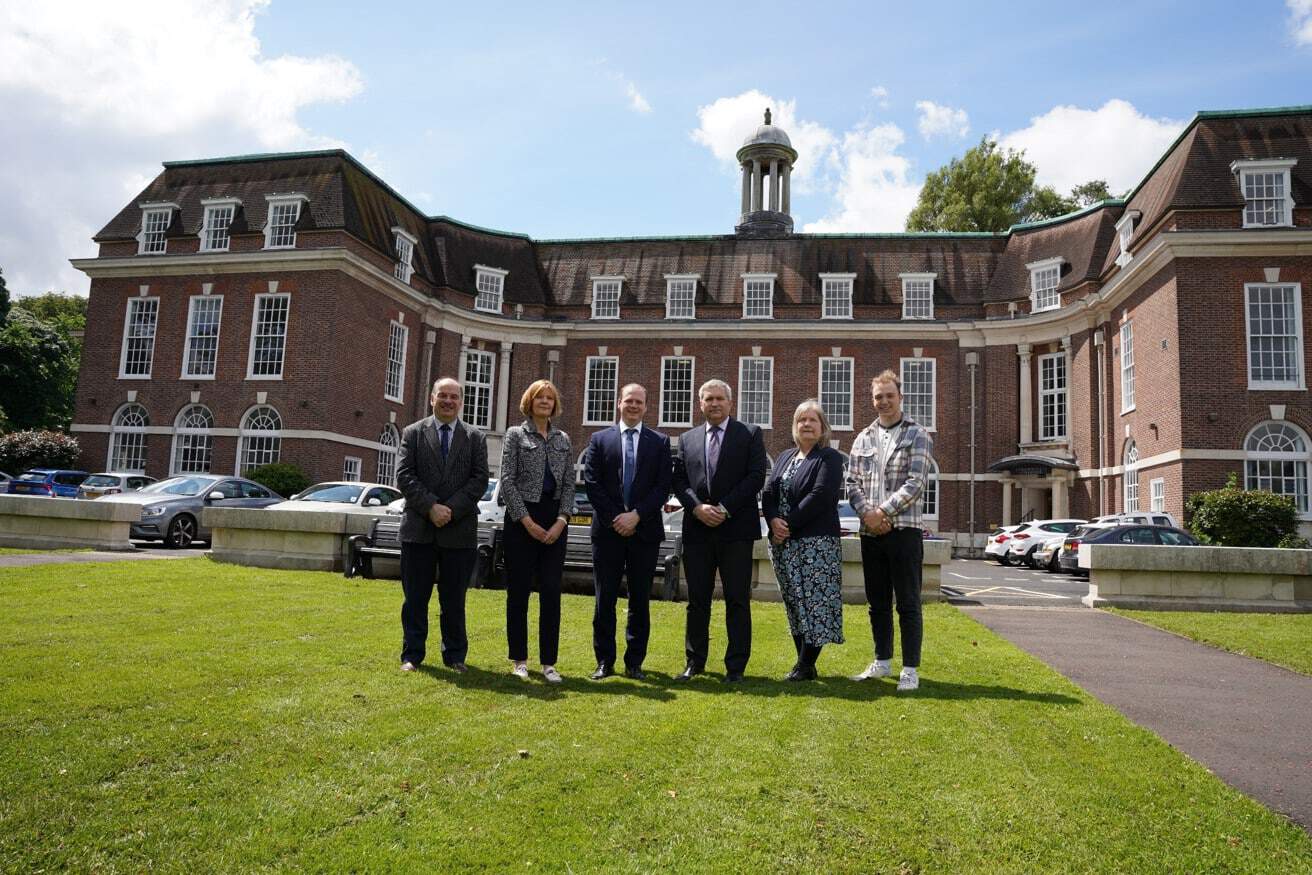
 Minister for the Economy, Gordon Lyons MLA, visited the College today where he was given a tour of the eco campus by Professor Jonathan Heggarty and met with the Executive Team and students. The Minister was briefed on the work of the College in key areas such as student wellbeing, the Centre for Research in Educational Underachievement and early years education, as well as some of the ambitious plans the College has for future developments and partnerships.
Minister for the Economy, Gordon Lyons MLA, visited the College today where he was given a tour of the eco campus by Professor Jonathan Heggarty and met with the Executive Team and students. The Minister was briefed on the work of the College in key areas such as student wellbeing, the Centre for Research in Educational Underachievement and early years education, as well as some of the ambitious plans the College has for future developments and partnerships.


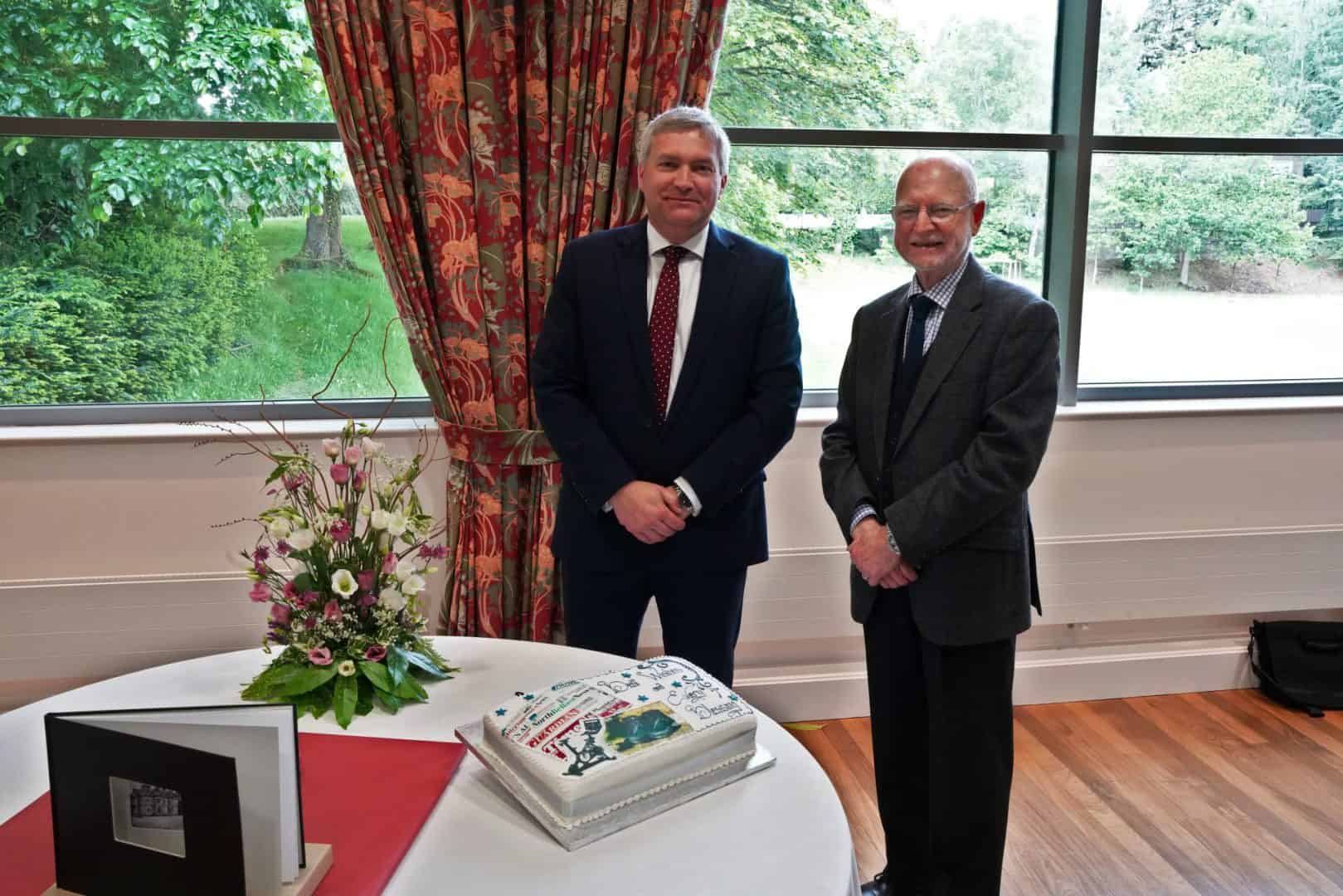
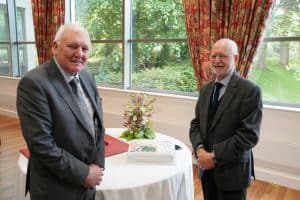 After 8 years of service to Stranmillis University College, as a College community we gathered together to celebrate the end of Professor Sir Desmond Rea’s term of office as Chair of Stranmillis University College’s Governing Body and his retirement from public service following a long and distinguished career in the University, public and private sectors. We wish him well and thank him for his significant contribution to the College’s continuing success.
After 8 years of service to Stranmillis University College, as a College community we gathered together to celebrate the end of Professor Sir Desmond Rea’s term of office as Chair of Stranmillis University College’s Governing Body and his retirement from public service following a long and distinguished career in the University, public and private sectors. We wish him well and thank him for his significant contribution to the College’s continuing success.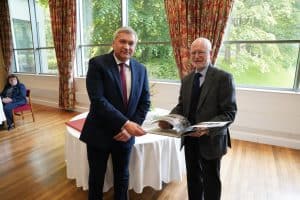
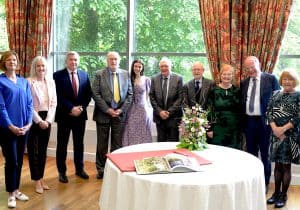

 Stranmillis University College and St Mary’s University College jointly hosted a Seminar with academics and students from one of our partner universities in Ukraine, Lesya Ukrainka University, Lutsk. Chaired by Dr Patricia Eaton and Dr Gerard McCann, the seminar included powerful presentations by Professor Valentyna Ushchyna and Professor Olexandr Belyakov from the Faculty of Philology, Lutsk, looking at how university teaching and learning has been affected by the invasion of Ukraine. The event also involved heart-felt reflections by four
Stranmillis University College and St Mary’s University College jointly hosted a Seminar with academics and students from one of our partner universities in Ukraine, Lesya Ukrainka University, Lutsk. Chaired by Dr Patricia Eaton and Dr Gerard McCann, the seminar included powerful presentations by Professor Valentyna Ushchyna and Professor Olexandr Belyakov from the Faculty of Philology, Lutsk, looking at how university teaching and learning has been affected by the invasion of Ukraine. The event also involved heart-felt reflections by four  Ukrainian students from Lutsk and one studying in Munich, on how the war has changed their lives. The open discussion at the end focused on supporting partners during this conflict, rebuilding life post-war in Ukraine and the role that universities can play in this process.
Ukrainian students from Lutsk and one studying in Munich, on how the war has changed their lives. The open discussion at the end focused on supporting partners during this conflict, rebuilding life post-war in Ukraine and the role that universities can play in this process. You can access the full recording of the by clicking on the link below and entering the passcode.
You can access the full recording of the by clicking on the link below and entering the passcode.
 The REF2021 results have just been published, and the College is delighted to able to announce that 78% of our research activity was deemed to be ‘recognised internationally’ in terms of originality, significance and rigour (up from 72% in REF2014) and 22% was judged to be at the very highest levels of ‘internationally excellent’ or ‘world leading’.
The REF2021 results have just been published, and the College is delighted to able to announce that 78% of our research activity was deemed to be ‘recognised internationally’ in terms of originality, significance and rigour (up from 72% in REF2014) and 22% was judged to be at the very highest levels of ‘internationally excellent’ or ‘world leading’.